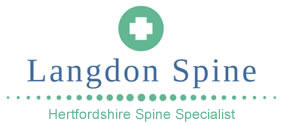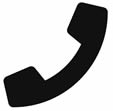Cervical Disc Prolapse - A Slipped Disc in the Neck
The discs in the spine are the soft tissue structures that lie between the bones (vertebral bodies). They function as both a spacer and a shock absorber. A disc is made up of a ring of outer fibres (the annulus), and central jelly-like substance (the nucleus). As a disc ages, the outer ring of fibres weakens and the nucleus dries out. This results in a weaker disc that is more prone to injury. A number of factors are thought to influence the rate of disc degeneration including inherited factors, previous injury, and smoking. The annulus may eventually rupture allowing the nucleus to prolapse through it. This is a disc prolapse.
Disc prolapses can irritate the nerve roots that pass behind the disc in the spinal canal. This nerve root irritation occurs by direct pressure of the prolapsed material on the nerve root. This nerve irritation stops the nerve from functioning normally and can cause arm pain, numbness, pins and needles, and weakness. These symptoms are called cervical radiculopathy. The arm pain radiates in the distribution of the nerve that is being irritated. It may be associated with neck pain.
The Natural History of a Disc Prolapse
Cervical disc prolapses are common, though not as common as lumbar disc prolapses. When a disc prolapse does occur it tends to cause a sudden onset of severe pain. Over the first few weeks this pain may resolve completely or settle down and plateau at a more manageable level. In many cases the symptoms completely resolve without treatment.
Assessment of Cervical Radiculopathy
Assessment involves taking a detailed history of your symptoms, followed by a physical examination. The history will include questions about the onset of symptoms, as well as the current level of symptoms. It is normal to be asked about your bladder and bowel function. This inquiry relates to loss of control rather than change in regularity. It is not uncommon for patients taking painkillers to become constipated. There should also be questions aimed at excluding other causes of your symptoms. You will also be asked about other medical problems, medications that you are taking, whether or not you have any allergies, and if you smoke.
The examination will include checking your arms for strength and sensation, as well as assessing your reflexes. If there are any concerns about loss of control of bladder or bowel function, then it may be necessary to perform a rectal examination.
Whilst the history and examination findings are frequently suggestive of a diagnosis, the diagnosis needs to be confirmed by an MRI scan.
Treatment Options
Non-Operative Treatment
Most patients with cervical radiculopathy crave effective pain relief. Simple painkillers and anti-inflammatory tablets are the most commonly prescribed, though stronger, opioid-based painkillers may be required. Patients with intense nerve type pain may also respond to medications that specifically act to reduce the sensitivity of the nerves (gabapentin / amitryptyllline / pregabalin). Physiotherapy / osteopathy / chiropractic treatment may be beneficial, but may also aggravate symptoms. Other simple interventions such as massage and heat may also help. In some patients it is appropriate to consider an injection of steroid and local anaesthetic around the nerves and the spinal cord. . The injection would be either a cervical epidural or a cervical nerve root block, depending on the site of the disc prolapse.
Most patients with a cervical disc prolapse causing arm symptoms respond to conservative management within 3 months.
Surgery
Surgery is indicated in patients who have persisting pain not relieved by non-operative treatment, or who develop progressive neurological signs and symptoms. Surgery involves the disc being removed through the front of the neck to take the pressure off the cervical nerve roots and the spinal cord. The disc is then replaced with an artificial spacer. This spacer is either a metal cage or a cervical disc replacement. The majority of patients undergoing an anterior cervical discectomy and fusion or cervical disc replacement are cured of their symptoms after surgery.
What Patients Say
Contact Us
Spire Harpenden Hospital
Amrose Lane
Harpenden
AL5 4BP
(01582) 714 304

